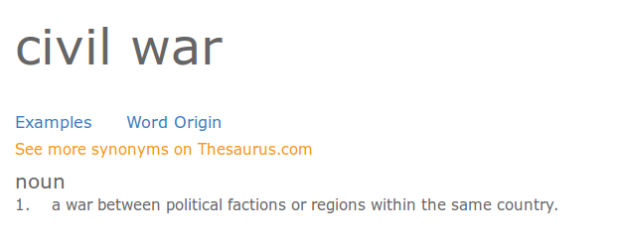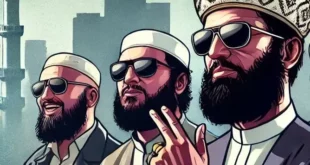Andrew Anglin
Daily Stormer
March 24, 2016
Jewish New York Times reporter Steven Erlanger has a piece up today addressing the situation of Whites v Moslems in Europe:
When the United States declared war on Al Qaeda after the Sept. 11 attacks, American leaders took the fight to the militant group’s hide-outs in Afghanistan, a faraway and failing state, with an invasion and occupation.
But for Europe’s leaders, who now consider themselves at war with the Islamic State after large-scale terrorist attacks at home, the challenge is more complicated: The enemy’s hide-outs are ghettoized parts of Paris, Brussels and other European cities that amount to mini failed states inside their own borders.
While France and Britain have joined the United States in bombing Islamic State targets in the Syrian city of Raqqa and other areas controlled by the group, also known as ISIS and ISIL, Europe has faced a much harder time understanding and dealing with its own citizens who have abetted the Islamic State’s ascent. These are mostly third-generation Muslim immigrants, who have become radicalized in poor communities left to develop outside the national culture.
I’m sure it’s hard to understand, because if you believe in the “race doesn’t exist – we’re all blank slates” theory – which all these people believe in – there is absolutely no reason why third-generation Moslems would be blowing people up on the streets.
So, yeah.
Being a war with people living inside of your country is definitely the definition of a civil war. One would expect, all things being equal, that this would be in the headline.
Instead, the only place in the article that the Jew Erlanger uses the term is in a quote from a security analyst who says it would only be a civil war if you started bombing Moslem neighborhoods.
“You can bomb Raqqa, and you may consider that to be war, but you’re not going to bomb Molenbeek or Schaerbeek or St.-Denis, unless you’re ready for civil war,” said François Heisbourg, president of the International Institute for Strategic Studies, referring to heavily Muslim areas of Brussels and Paris.
President François Hollande of France and his prime minister, Manuel Valls, have repeatedly described Europe’s fight against the Islamic State as war; Mr. Heisbourg called that an “extremely dangerous” use of the word. “It starts with Raqqa and can end up with the Algerian civil war, and that would be the ultimate victory of Daesh,” he said, using an Arabic term for the Islamic State. “They want to divide our societies against ourselves.”
But no one believes that the traditional European societies and the colonies within them built by Moslems are the same societies to begin with.
The dual nature of the European struggle against the Islamic State separates it from the American “global war on terrorism” and deeply complicates it, argued Raffaello Pantucci, director of international security studies at the Royal United Services Institute, a defense-oriented research institution.
“We need a dual response,” he said, more bellicose on the Islamic State abroad but less so at home, emphasizing longer-term social work in isolated and disenfranchised communities.
Mo money fo dem programs.
The objective, he said, is to counter radical voices who often provide paths into meaning for young men who have been petty criminals. Most of the European terrorist suspects were known to the local police.
“There is a realization that this is not a war you can bomb or shoot your way out of, but you have to deal with individuals who are radicalized at home, to examine the reasons that they are exploring this other identity,” said Mr. Pantucci, who wrote a book on the issue: “We Love Death as You Love Life: Britain’s Suburban Terrorists.”
You could, of course, deport your way out of it.
But that would be pure hatred.
Instead we need to stay the course with our delusional vision of a vibrant and diverse paradise where somehow Moslems aren’t violent.
There is absolutely zero reason to believe “education” will stop Moslems from blowing things up, and in fact it may actually simply agitate them and make them more likely to lash-out through random mass-murder.
But hey, we don’t have any other options, right?
Belgium, already divided by language and with a plethora of local and state federalisms and police forces, provides a special example. More so than elsewhere, Belgium allowed the self-ghettoization, or self-isolation, of ethnic communities in the name of multiculturalism and peace.
“There are parts of Europe, especially in France and Belgium, where over the past two decades you’ve seen the emergence of essentially ungoverned spaces, nearly akin to Yemen or Libya,” said Peter R. Neumann, director of the International Center for the Study of Radicalization and Political Violence at King’s College London. “Molenbeek is one of them, a place where local authorities and even mainstream Muslim groups abandoned them, with an informal pact, that ‘as long as we don’t see you, we won’t bother you.’ ”
But I thought European no-go zones were an urban myth?
Criminal groups, but also Islamist radicals, soon “figured out that this local anger could be channeled into radical extremism,” he said. Resentment and alienation from the state meant that these groups “could enter and work without being hassled by the police but also found people open to their message.”
Mr. Heisbourg said that the result was “a disaster for counterterrorism.” These were “no-go areas for the authorities, who have found it very difficult to get informants and human intelligence,” noting that many of the French citizens who carried out attacks in France lived or were hosted in Brussels neighborhoods like Molenbeek.
…
Places like Molenbeek and Schaerbeek, where the bombs used on Tuesday were thought to have been constructed, have been problems for a long time, Mr. Pantucci said. “One question is whether more could have been or should have been done to understand the local problems and deal with them. Because left alone, over time there is an undercurrent of radical ideologies,” radical preachers and recruitment networks, “and getting rid of that is very, very difficult.”
No, it isn’t.
It’s called “deportation.”
Why on earth are these people even here in the first place? Why does no one explain that? They live in a totally separate society, which is parasitically to the natural society. Then they blow up the people who are feeding them.
What is the point of it?
As this ongoing civil war continues, that is a question a lot more Europeans are going to begin asking.
 Daily Stormer The Most Censored Publication in History
Daily Stormer The Most Censored Publication in History



